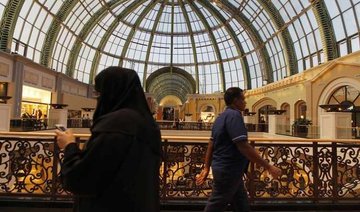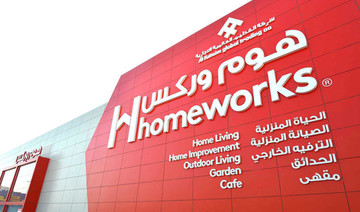KARACHI: If the plan gathers steam, UAE’s Al Futtaim Group could soon collaborate with Renault to set up a car manufacturing plant in Pakistan worth $300 million.
Industry analysts say that Pakistan’s automobile manufacturers were already increasing their production capacity in anticipation of the project.
“Pakistan is expecting 10 new players in the greenfield projects who will set up new plant and machinery while two existing players have announced plans for a brownfield project, which will upgrade their plants. Al Futtaim is one of the new entrants in the greenfield project,” Syed Danyal, an auto sector analyst at Topline Securities, told Arab News.
Al Futtaim plans to set up the assembling plant in Faisalabad, in the Punjab province, and is in the process of securing approval from Pakistan’s authorities. “The company plans to introduce Renault vehicles in Pakistan. The installed production capacity it aims to target is around 25,000 units per year that will be gradually attained,” Danyal added.
Headquartered in Dubai, Al Futtaim Group has presence in many countries including Pakistan, Afghanistan, Sri Lanka and Saudi Arabia and distributes Ford, Honda, Toyota, Nissan, Suzuki Chrysler, Volvo, Lexus and other auto brands under its banner.
Pakistan’s car assemblers expect that the demand for the vehicles will be 5,00,000 units by 2024-2025. The sale of new/imported cars in Pakistan currently stands at 268,000 units, which includes used cars imported mainly from Japan. The installed production capacity is currently 285,000 units per year, data released by the Pakistan Association of Automotive Parts and Accessories Manufactures (PAPAAM) showed.
“We are ready to welcome new entrants because their arrival will not only increase the market share but will create employment opportunities and provide people more options to choose from,” Muhammad Ashraf Shaikh, Chairman of PAPAAM, told Arab News.
Pakistan’s automobile industry is dominated by Japanese car assemblers with a visible presence of Korean brands, with recent additions of Chinese brands. However, the French car manufacturer Renault, would be the first European brand to produce cars in Pakistan, if the proposed plant is setup.
Pakistan’s domestic auto vending sector provides up to 70 per cent of locally made parts for cars and light commercial vehicles, up to 94 per cent for motorcycles, and up to 55 per cent for heavy vehicles such as buses. The overall investment in the sector is around Rs140 billion, according to PAPAAM’s data.
“We are enhancing our capacity to meet the growing demand by putting up new machinery and technology with approximately Rs15-16 billion investment ,” Shaikh said.
Experts believe that the new entrants will not face immediate competition due to the incentives offered by the government under the Automobile Development Policy 2016-21. “The new entrants will enjoy concessional duty rates at least for the five years [that they are] in operations,” Aamir Allawala, a senior auto expert, told Arab News.
Allawala added: “The new entrants will pay only 10 per cent import duty on the auto parts which are not being manufactured in Pakistan while they will pay 25 per cent duty on the import of those available in Pakistan.”
At present auto manufacturers pay around 33 per cent on the account of various taxes, Allawalla said, adding that “the government should reduce taxes and resolve the issue of non-filer to expand the auto market”.
Pakistan’s automobile industry contributes around 2.8 per cent to the country’s GDP. With the arrival of new players, the economic activity is expected to double with many plyers vying for the market share. “At present the consumer segment of less than 1000cc cars has a lot of vacuum. Those entering this segment with a reasonable price bracket will benefit to a large extent,” Danyal said.





















